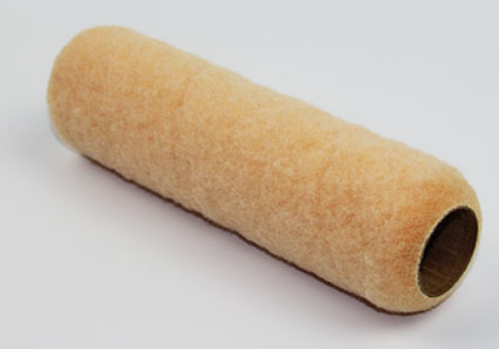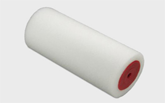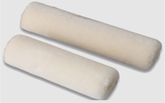Types of Paint Rollers & It's Recommended Uses
Jul. 18, 2024Types of Paint Rollers
Types of Paint Rollers. There are five main types of paint rollers, each designed for a specific purpose, including manual, pad, textured, specialty, and mini paint rollers. Understanding the differences between these types is essential to effectively learn how to choose a paint roller for your next project. There are several types of paint rollers used in painting, each with its own unique characteristics and recommended uses:
Foam Rollers
Lightweight and easy to use, foam rollers are ideal for applying water-based or low-viscosity paints. They are known for their ability to create an even and smooth finish.
Microfiber Rollers
Microfiber rollers are known for their ability to hold and release paint effectively, making them ideal for applying thicker or heavier paints on rough textured surfaces. They are also less likely to leave lint or fibers on the painted surface.
Mohair Rollers
Mohair rollers have a very fine nap, making them ideal for applying fine-textured or low-viscosity paints. They are known for producing a smooth and even finish.
Nylon Rollers
These are durable, long-lasting, and suitable for use with most types of paint roller, including oil-based, water-based, epoxy, polyurethane, and bitumen paints.
Polyester rollers
These are made of synthetic fibers and are often used for oil-based paints as they can hold more paint and apply it more smoothly.
Advantages of Nylon Rollers
Nylon rollers can be more effective than polyester rollers in various applications, particularly when applying Bitumen, Epoxy, and PU resin products. There are several reasons why nylon rollers are often preferred in these situations.
Smooth Surface and Even Distribution
One of the primary advantages of nylon rollers is their smooth surface, which helps distribute materials evenly. This smoothness ensures a uniform application, which is crucial for achieving a professional finish, especially with specialized coatings like Bitumen, Epoxy, and PU resins.
Resistance to Abrasion
Nylon rollers are highly resistant to abrasion. This characteristic makes them durable and suitable for use on rough surfaces or in situations where the roller is subjected to significant wear and tear. Polyester rollers, in comparison, may wear out more quickly under similar conditions.
Superior Consumption Characteristics
Another benefit of nylon rollers is their superior consumption characteristics. They can hold more material and release it more consistently than polyester rollers. This ability not only improves efficiency but also reduces the likelihood of shedding fibers. Fiber shedding can be a significant issue as it can embed in the paint, leaving unwanted streaks or marks on the surface.
Solvent Resistance and Versatility
Nylon rollers are more resistant to solvents compared to their polyester counterparts. This resistance allows them to handle a wider range of paint roller types without becoming damaged. The versatility of nylon rollers makes them an excellent choice for various painting and coating tasks.
Considerations for Choosing Paint Roller Material
While nylon rollers offer many advantages, it is essential to consider other factors when choosing the right roller material for your needs. These factors include:
Cost
Nylon rollers tend to be more expensive than polyester rollers. Therefore, the cost may be a deciding factor, especially for large projects or for those on a tight budget.
Durability
The durability of the roller is crucial, especially for professional use. Nylon rollers are generally more durable than polyester rollers, making them a better long-term investment.
Resistance to Chemicals
Different coatings and paints contain various chemicals. Nylon rollers are more resistant to these chemicals, making them a more reliable choice for diverse applications.
Temperature Fluctuations
Temperature fluctuations can affect the performance of rollers. Nylon rollers are better suited to handle extreme temperatures without compromising their integrity, making them ideal for use in various environmental conditions.
Conclusion
Nylon rollers provide numerous benefits, particularly for applying Bitumen, Epoxy, and PU resin products. Their smooth surface, abrasion resistance, superior consumption characteristics, and solvent resistance make them a versatile and durable option. However, it is essential to weigh these advantages against factors such as cost, durability, and chemical resistance to choose the right roller material for your specific application.
















